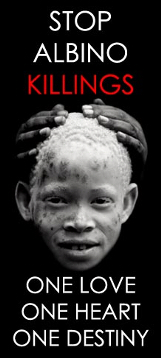Join Our Online Community!
![]()
![]()
![]()
![]()
![]()
![]()
![]()
![]()
![]()
Community Participation: (Essence and Significance)
As pointed out above, building capacity of Community Members in service areas of the Evangelical Lutheran Church in Tanzania has been given foremost priority as of driver for transformations in aspects surrounding health development. The process has gone side by-side with the basic training of refresher or coaching of different cadres on their roles and responsibilities. While in the latter aspect, the aim has been to improve competence of health staff as a basis for quality improvement, the first instance is for behaviroural change that results into healthy communities or HEALTHY VILLAGES. Both approaches are essential for people who are entrusted to certain roles. Health staff competence is a spring board for Self-actualization – which is a state of knowing exactly who you are, where you are going, and what you want to accomplish.
One of the topics in capacity building training session for the Primary Health Care Committees in ELCT Dioceses in : Community Participation in Health Projects. Community Participation can be well understood by reading Community Development Models and considering ideas of development gurus or statesmen such as Mwalimu Julius Kambarage of Tanzania for such people are the mirror images of development.
Reading from Mwalimu Julius Kambarage Nyerere:
“Freedom and development are as completely linked together as are chicken and eggs! Without chickens you get no eggs; and without eggs you get no chickens. Similarly, without freedom you get no development, and without development you very soon lose your freedom…. “Development brings freedom, provided it is development of people. But people cannot be developed; they can only develop themselves. For, while it is possible for an outsider to build a person’s house, an outsider cannot give the person pride and self-confidence in themselves as human beings. Those things people have to create in themselves by their own actions. They develop themselves by what they do; they develop themselves by making their own decisions, by increasing their own knowledge and ability and by their own full participation – as – in the life of the community they live in …People develop themselves by joining in free discussion of new venture, and participating in the subsequent decision; they are not being developed if they are herded like animals into the new venture. Development of people can, in fact, only be affected by people.”
Reading from Mwalimu Julius Kambarage Nyerere:
Julius K. Nyerere, Freedom and Development, Oxford University Press, Dar Es Salaam, 1973, pp. 58 & 60.
The concept of Community Participation in health sector programmes emerged in 1970s. In terms of health, Community Participation can be regarded as voluntary involvement of the people in self-determined health changes. It is a process whereby the community is engaged in identification of problems, planning, implementation, monitoring and evaluation with end results being their benefit. In Tanzania, the process of Community Participation in Health and Development Programmes was launched in 2004 when the Obstacles and Opportunities to Development (O &OD) Approach to Planning was introduced as sole modality in District Planning under stewardship of Prime Minister’s Office. Unfortunately the approach has just been adapted by few District Council and the conventional Logical Framework Analysis (LFA) has dominated. This is because even the PlanRep 6.9 software currently in use by Local Authorities Planning is based on LFA.
Primary Health Care Project – which has been a component of the Evangelical Lutheran Church in Tanzania Health Programme has promoted O &OD approach in developing PHC Projects in ELCT Dioceses and the approach is slowly being adapted in form of Integrated Health and Development Programmes – or fashionably referred to as Sustainable Health and Livelihood Programmes - in case of Poverty Reduction Strategies.
However; historically, by mid-1970s it was recognized that it was not possible for disease-oriented Bio-Medical Model to respond adequately on health problems facing majority of world population. It was realized that mobilization of resources from the community was the other alternative. The community was considered as a potential resource for their own health and that it could support health service delivery through their views and acting themselves.
The O & OD approach is Psycho-Social Approach. It has rich information because it allows communities to tell the story in their own words. There is more interactive than other types of approaches. When it is used in problem identification process more complex issues can be probed thus increasing insight of user into social phenomena rather than assuming representations of people such as technocrats in Council Health Management Teams (CHMTs) or Regional Health Management Teams (RHMTs). Tanzania and other Health Actors like ELCT are promoting this approach because more participatory policies can be formulated and enhanced by the people because they know it. Therefore Policy and Programmes are according to needs / rights of the people and are Evidence-Based. From 1978 many governments around the world adapted policies of Community Participation as part of their strategy to implement developments programmes and as one of the pillars to achieve “Health for All by year 2000 and beyond”.
"Partnership for Healthy Communities for A Healthy Nation"







